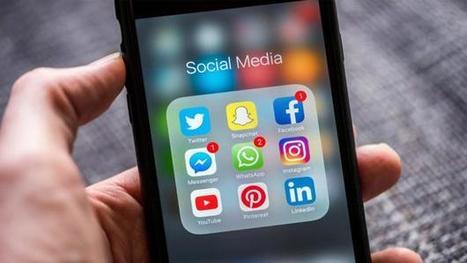Describing yourself as ‘a social media addict’ doesn’t usually inspire concern from other people. In fact, it’s frequently included in bio descriptions on Twitter and Instagram. Decorate your LinkedIn profile with such a claim and you may even find yourself receiving interest from media and publishing companies searching for a savvy digital native. But imagine if, one day, it’s not an accolade or joke at all – but a psychiatrist’s diagnosis?
Social media addiction has been a much-flouted term lately; maybe it’s because it’s January and users are looking to be more active and spend less time online, or maybe that’s because social media can have a negative impact on our mental well-being. But a growing body of research is seriously considering whether problematic and excessive social media usage could be pathological and, in turn, designated as a mental health disorder.
Via John Evans



 Your new post is loading...
Your new post is loading...








